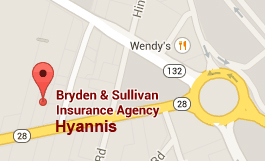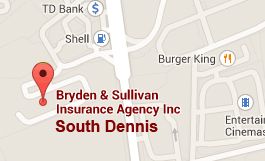Condominium Insurance

Buying or owning a condominium can be a new and different lifestyle, and it requires new and different insurance protection. At Bryden and Sullivan, we’re committed to bringing you innovative insurance solutions. This section is designed to help answer some basic questions about condominium ownership and your insurance needs. Whether a prospective buyer or own your own unit(s), you owe it to yourself to consider your insurance needs carefully.
What types of insurance do I need for my condominium?
The condominium declarations typically regulate which coverages are provided under the master policy and which you will need to purchase in a personal unit owner’s policy. Coverage for the common areas of the condominium is generally provided by the association master policy. The master policy protects the common areas or property that is owned collectively by all condominium owners.
As a unit owner, you must insure your private property and property in which you have sole ownership, or for which you are solely responsible; and you must be sure your personal insurance program properly coordinates with the master policy to ensure full coverage.
First, we encourage you to read your condominium document and insurance policy carefully, to ensure you are insured properly. Basically, it contains the following coverages:
1. Property coverage on the unit:
This includes portions of your unit such as walls, partitions, built-in appliances, etc.; structures owned solely by you on the premises such as cabanas and carports (whether part of the original unit or added later by you); and any materials and supplies you solely own and are going to use to make alterations or improvements to your unit or other structures.
2. Personal property coverage:
This includes your possessions while in your unit, buildings in which you have sole interest, or common areas in which you have joint interest. This coverage encompasses personal property located in your unit and areas such as garages, workshops, laundry rooms, recreation rooms, etc. Additionally, your personal property is covered off-premises, which means it’s insured while you are traveling.
3. Additional living expenses coverage:
This insurance reimburses you for the extra cost of rooms and meals, and certain other expenses when you can’t live in your unit because it has been damaged by a peril covered in your policy. The Travelers Condominium Protection Program will also reimburse you for loss of rent if part of your unit is rented to others at the time it is damaged.
4. Personal liability coverage:
This insurance provides comprehensive personal liability coverage for you and family members residing in your household for claims resulting from bodily injury to others or damage to the property of others. Coverage applies to injury or damages arising out of property in which you have a sole interest, or is reserved for your exclusive use. This coverage protects you and your family members who reside in your household worldwide.
5. Medical payments to others:
Provides coverage for medical expenses incurred as a result of bodily injury to others.
6. Loss assessment coverage:
On a basic policy, loss assessment coverage protects you up to a limit of $1,000 for assessments resulting from bodily injury or property damage claims levied against the association, if the claim exceeds its insurance limit.
When would be a good time to see my Bryden and Sullivan agent?
The best time to speak with Bryden and Sullivan is after you have chosen your condominium and before the “closing.”
Bryden and Sullivan understands that no two families are identical and no two condominiums are identical. Our condominium insurance agents can match the insurance needs of your family and your condominium with the Travelers Condominium Protection Program. As condominium documents vary, so do insurance policies. For a complete description of coverages, contact Bryden and Sullivan agents today.
6 Steps for Storm Preparedness on Cape Cod
1. Know your Risk.Wind Storms, Hurricanes, Blizzards and Flooding are our most immediate concerns on Cape Cod. It's always best to have your own Emergency Preparedness Plan. You can protect your local emergency management organization to determine if there are already community-wide preparedness materials you can have, including evacuation routes, shelters and communication systems. |
|
2. Assemble or Update your Emergency Kit.Stock up on basic supplies you might need if you had to evacuate your home quickly. Items may include food, water, first aid supplies, medication, batteries, blankets and pet supplies. Put these items in a lightweight, waterproof container an dplace it somehere that can be easily accessed in an emegrency. |
|
3. Create a Communication Plan.Your family might not be together when disaster strikes. Have a discussion with your kids about emergency preparedness, including where you can meet and how everyone can get in contact if the unexpected happens. |
|
4. Practice your Plan.Mock scenarios with your family and even your entire community can help everyone understand how to prepare for, react to and recover from a disaster with confidence. That way, if an emergency were to strike, each member would know exactly which tasks they are responsible for to keep themselves and others safe. |
|
5. Prepare your Home.You can reduce the risk of injury to yourself and damage to your home by preparing your property for disaster. For example. in the case of a hurricane, it is recommended to board all windows and doors with hurricane shutters, and turn refrigerators and freezers to the coldest setting in order to preserve food, whereas a blizzard and freezing temps require salting the driveway and letting cold water drip from the faucet to prevent frozen pipes. |
|
6. Document and Insure your property.Under certain circumstances, damage to your home may not be covered under a basic homeowner's insurance policy. Talk to Bryden and Sullivan insurance agents to determine if you need any additional coverage for the risks your area is particularly susceptible to, such as tornadoes, wildfires, hurricanes and more. |
|




